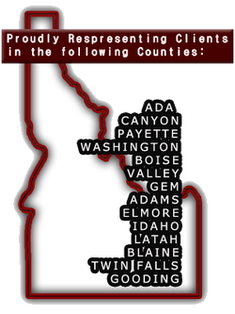|
I got pulled over for DUI. Can a police officer draw my blood without a warrant?
Short answer, maybe. A police officer might be able to draw your blood without a warrant, but will likely obtain a warrant before drawing your blood. In April of 2013, in the case of Missouri v. McNeely, the United States Supreme Court held that a police officer is required to obtain a warrant before drawing your blood because your body’s natural metabolism of alcohol doesn’t create the immediate necessity required to permit a warrantless blood draw. However, while police are generally required to obtain a warrant before drawing your blood, there are two situations where a police officer can probably draw your blood without a warrant. First, a police officer can probably draw your blood without a warrant based on the “implied consent” you gave by driving on Idaho’s roads. In other words, by driving on Idaho’s roads you are consenting to a blood alcohol content (BAC) test because of the benefits you receive from using those roads. While there are strong arguments against this theory, some Idaho courts still use it to uphold warrantless blood draws. Second, a police officer is allowed draw your blood without a warrant when exigent circumstances exist. Exigent circumstances are those situations that demand immediate police action. The exigency of every situation is judged on a case-by-case basis with special attention paid to the circumstances that lead up to the situation. So, for instance, a few situations where a warrantless blood draw would be allowed include where you were involved in a car crash or where a child is present in your vehicle. Even if exigent circumstances don’t exist, it’s easy for a police officer to get a warrant to draw your blood. As long as a police officer can show that there is probable cause to suggest you under the influence of alcohol, a warrant can be obtained. Once probable cause is shown, a warrant is only a phone call or two away. Either the arresting police officer or a local prosecutor will call the judge, explain the facts of the situation supporting probable cause, and the judge will normally issue a warrant to draw your blood. However, if a judge does not issue a warrant and the police draw your blood anyway, your Fourth Amendment rights might have been violated and it’s possible that your BAC results from your blood draw cannot be used as evidence against you.
1 Comment
|
Archives
February 2023
AuthorDevon Wilson, Marketing, PR Categories |
|
Boise Law Firm - Local Map listing
|

Jeff Nona Attorney at Law - Serving The following Counties in Idaho
Ada County Canyon County Payette County Washington County Boise County Valley County Gem County Adams County Elmore County Idaho County Latah County Blaine County Twin Falls County Gooding County |
READ ABOUT US:
legaldirectorate.com/company/jeffery-e-nona-2083311633-boise/
https://threebestrated.com/dwi-lawyers/jeffery-enona---jeff-nona-attorney-at-law-boise-city-130909058
READ ARTICLES ON OUR BLOG
legaldirectorate.com/company/jeffery-e-nona-2083311633-boise/
https://threebestrated.com/dwi-lawyers/jeffery-enona---jeff-nona-attorney-at-law-boise-city-130909058
READ ARTICLES ON OUR BLOG
If you need help, call Jeffery E. Nona, Attorney At Law today at 208-331-1633 to schedule your free initial consultation.
***The information on this website is for general information purposes only. Nothing on this site should be taken as legal advice for any is not intended to create, and receipt or viewing does not constitute, an attorney-client relationship.
Contact Us | Resources | Terms Of Use | Privacy Policy | Linking Policy | Jeff Nona Attorney at Law - All Rights Reserved
 RSS Feed
RSS Feed

